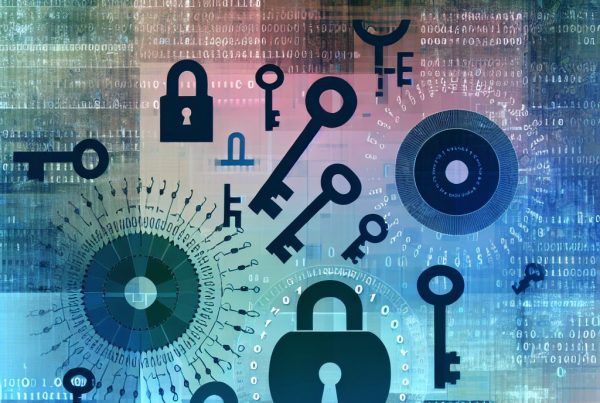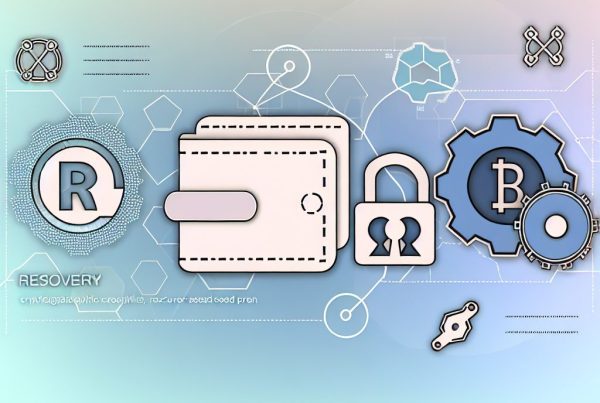Understanding How Crypto Wallet Addresses Work
In the world of cryptocurrency, wallet addresses serve as the digital equivalent of a bank account number. They are essential for sending and receiving cryptocurrencies, and understanding how they function is crucial for anyone looking to navigate the crypto landscape. This article delves into the intricacies of crypto wallet addresses, their types, how they are generated, and their role in the broader blockchain ecosystem.
What is a Crypto Wallet Address?
A crypto wallet address is a unique identifier that allows users to send and receive cryptocurrencies. It is typically a string of alphanumeric characters, and it can vary in length depending on the cryptocurrency. For example, a Bitcoin address is usually 26-35 characters long, while an Ethereum address is 42 characters long, starting with ‘0x’.
These addresses are derived from public keys, which are generated alongside private keys in a cryptographic process. The public key is what forms the wallet address, while the private key is kept secret and is used to sign transactions.
Types of Crypto Wallet Addresses
There are several types of crypto wallet addresses, each serving different purposes and functionalities:
- Legacy Addresses: These are the original Bitcoin addresses that start with a ‘1’. They are still widely used but are less efficient in terms of transaction fees.
- SegWit Addresses: Starting with ‘3’, these addresses support Segregated Witness (SegWit) technology, which helps reduce transaction sizes and fees.
- Bech32 Addresses: These are native SegWit addresses that start with ‘bc1’. They offer improved efficiency and lower fees.
- Ethereum Addresses: These addresses start with ‘0x’ and are used for transactions on the Ethereum blockchain.
- Smart Contract Addresses: Unique addresses that represent smart contracts on platforms like Ethereum, allowing for decentralized applications (dApps) to function.
How Are Crypto Wallet Addresses Generated?
The generation of a crypto wallet address involves a series of cryptographic processes:
- Private Key Generation: A private key is generated randomly, typically using a secure random number generator. This key is crucial as it allows the owner to access and manage their funds.
- Public Key Derivation: Using elliptic curve cryptography (ECC), the private key is transformed into a public key. This process is one-way, meaning it is computationally infeasible to derive the private key from the public key.
- Address Creation: The public key undergoes hashing (using SHA-256 and RIPEMD-160) to create the wallet address. Additional encoding (like Base58Check for Bitcoin) is applied to ensure the address is user-friendly.
The Role of Wallet Addresses in Transactions
When a transaction is initiated, the sender uses the recipient’s wallet address to direct the funds. Here’s how it works:

- Transaction Creation: The sender creates a transaction that includes the recipient’s wallet address, the amount to be sent, and a digital signature created using their private key.
- Broadcasting the Transaction: The transaction is then broadcasted to the network, where it is verified by nodes.
- Inclusion in a Block: Once verified, the transaction is included in a block and added to the blockchain, making it immutable and publicly accessible.
Security Considerations for Wallet Addresses
While wallet addresses are designed to be secure, there are several considerations to keep in mind:
- Phishing Attacks: Users should be cautious of phishing attempts that aim to steal wallet addresses or private keys. Always verify the source before entering sensitive information.
- Address Reuse: Reusing wallet addresses can compromise privacy and security. It is advisable to generate a new address for each transaction.
- Private Key Security: The security of a wallet address is only as strong as its private key. Users must store their private keys securely, preferably offline.
Real-World Use Cases of Crypto Wallet Addresses
Crypto wallet addresses are not just theoretical constructs; they have practical applications across various sectors:
- Remittances: Many individuals use crypto wallet addresses to send money across borders quickly and with lower fees compared to traditional banking systems.
- Decentralized Finance (DeFi): Users interact with DeFi platforms using wallet addresses to lend, borrow, and trade assets without intermediaries.
- Non-Fungible Tokens (NFTs): Wallet addresses are used to buy, sell, and store NFTs, which have gained immense popularity in the art and entertainment industries.
Statistics on Crypto Wallet Usage
The adoption of cryptocurrency and wallet addresses has seen significant growth in recent years. Here are some noteworthy statistics:
- As of 2025, there are over 300 million crypto users worldwide, with millions of active wallet addresses.
- Bitcoin remains the most popular cryptocurrency, with over 200 million unique wallet addresses.
- The DeFi sector has grown exponentially, with over $100 billion locked in various protocols, all utilizing wallet addresses for transactions.
Frequently Asked Questions (FAQs)
What happens if I lose my crypto wallet address?
If you lose access to your wallet address and its corresponding private key, you will lose access to your funds permanently. It is crucial to back up your wallet information securely.
Can I change my crypto wallet address?
Yes, you can generate new wallet addresses from your wallet software. It is advisable to use a new address for each transaction to enhance privacy.
Are crypto wallet addresses anonymous?
While wallet addresses do not contain personal information, they are pseudonymous. Transactions are recorded on the blockchain, making them traceable. Using multiple addresses can help maintain privacy.
How do I know if a wallet address is valid?
Most wallet software will validate an address before sending a transaction. You can also use online tools to check the format and validity of an address.
Conclusion
Understanding how crypto wallet addresses work is fundamental for anyone involved in the cryptocurrency space. These addresses facilitate secure transactions, enhance privacy, and enable users to interact with various blockchain applications. As the industry continues to evolve, staying informed about wallet addresses and their functionalities will empower users to navigate the crypto landscape effectively.
For the latest news and updates in the cryptocurrency world, consider visiting Bitrabo. You can also follow me on social media for more insights: X, Instagram, and Threads.
Disclaimer: The information provided in this article is for educational purposes only and should not be considered financial advice. Always conduct your own research before making investment decisions.
The Crypto Watchlist of the Week 🔎
Subscribe to receive expert-curated projects with real potential—plus trends, risks, and insights that matter. Get handpicked crypto projects, deep analysis & market updates delivered to you.


